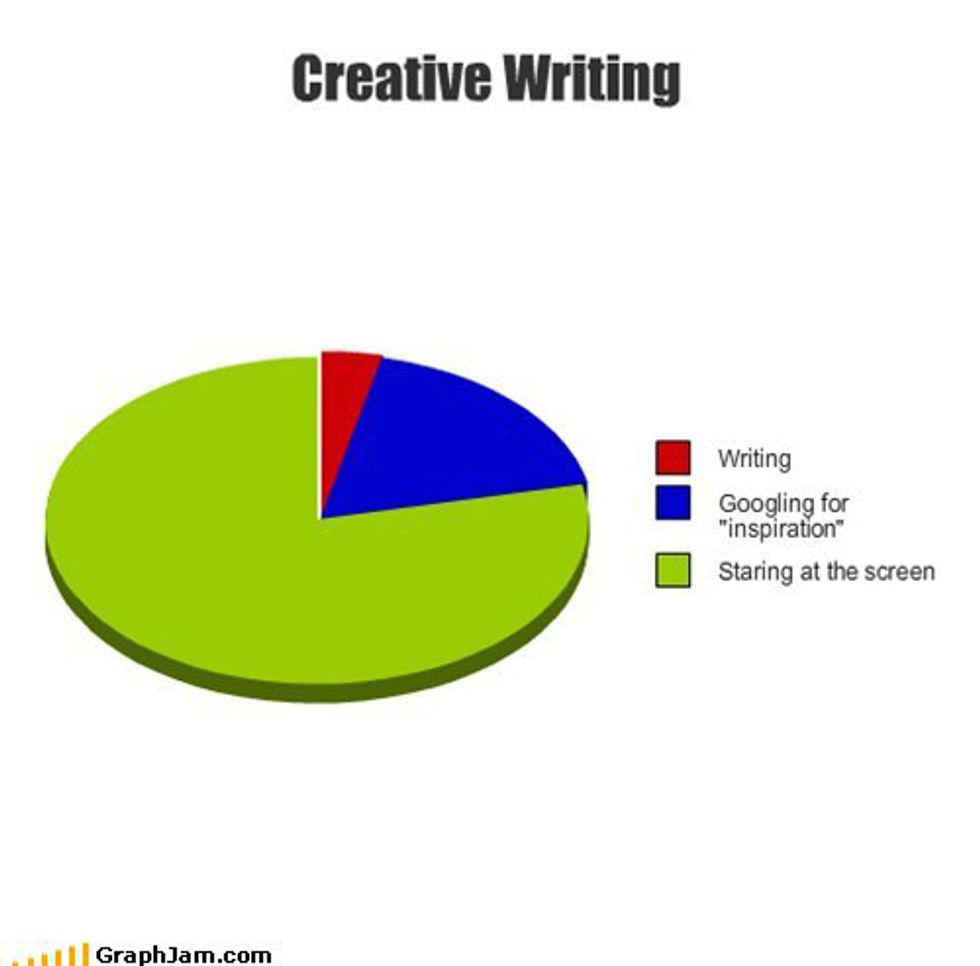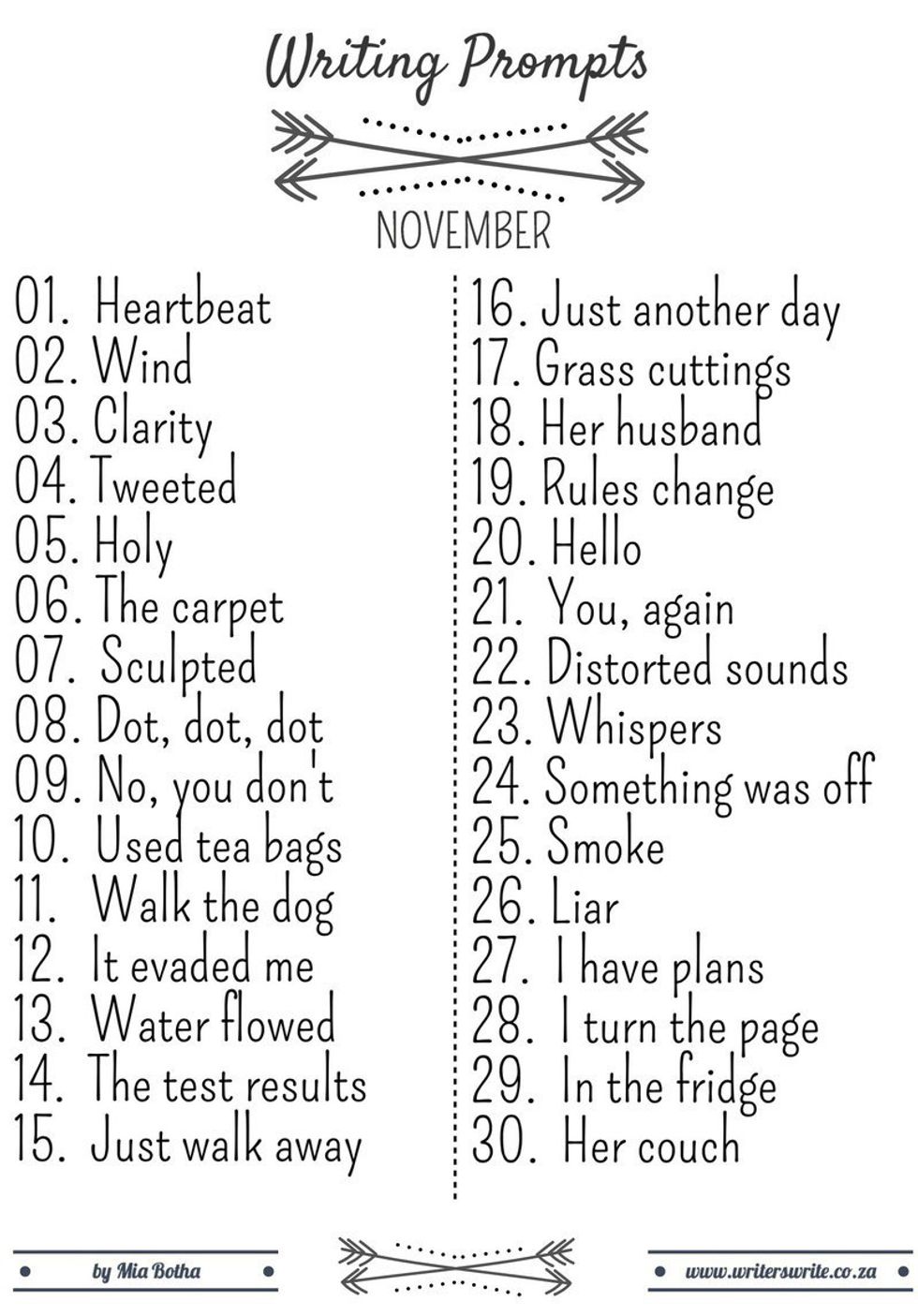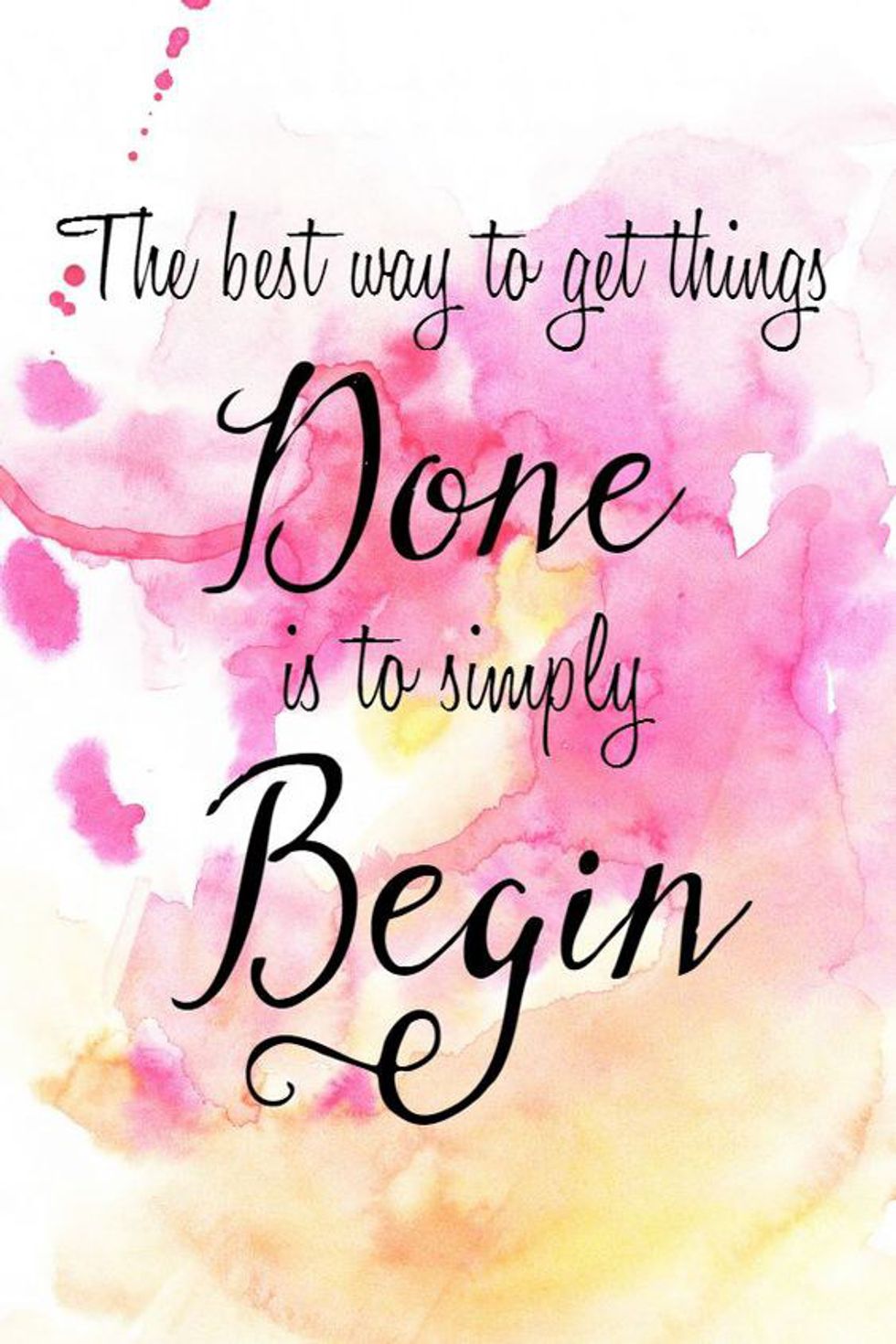I know you’re busy either mourning the end of October (and therefore Halloween) or getting all your Christmas stuff out, but I implore you to stop for a moment because there is still something in between the two holidays. I mean, there is something besides Thanksgiving and Black Friday. That something is (*cues dramatic music*) NaNoWriMo.
In case you don’t know, NaNoWriMo stands for National Novel Writing Month. Catchy, right? Anyway, NaNoWriMo takes place from November 1st to the 30th and the goal is to write 50,000 words in 30 days. 50,000 words is about the minimum for a novel and yes, it is a lot of words. It’s approximately 1667 words per day, which ends up being somewhere between 175-200 pages, depending on your font and spacing. It's not impossible, but why would anyone subject themselves to this torture, you might ask?
Writers are notorious procrastinators. When they’re on the internet they say they’re “doing research” or “looking for inspiration” and sometimes they are, but most of the time, they’re on Pinterest. Or watching videos on YouTube. Scrolling through Tumblr. You get the picture. It’s a vicious cycle. What NaNoWriMo does is it gives you a deadline and a goal to work toward. You certainly do not have to finish your novel by the end of the month, but you can get through a fair amount of the first draft if you force yourself to write.
So maybe you’re interested in participating, but the idea of writing that many words in one month intimidates you. Fear not! I have compiled a (hopefully) helpful collection of tips for aspiring NaNoWriMo participants.
Create a NaNoWriMo account
You don’t technically need an account to do NaNoWriMo, but the official website has a bunch of helpful features. Not only can you track your word count, you can also find out about local events, connect with friends and/or other writers, find inspiration, even receive discounts on specific writing resources.
Set your own goal
You don’t have to write 50,000 words in a month. In fact, I almost encourage you not to, if you have never done this before. Obviously, 1667 words/day is a big commitment, one you may not be ready to make and if that’s what is stopping you, then just come up with your own goal. The first time I tried to do NaNoWriMo, I was a junior in high school and decided to aim for 20,000 words. Like for a marathon, you need to train yourself beforehand. There is no shame in choosing something other than 50,000. Work your way up to it.
It doesn’t have to be a novel
Novels are not everyone’s favorite medium of writing and I completely respect that. So, write a collection of short stories. Poetry. Even fan fiction counts, believe it or not. It’s not about what kind of writing you do; it’s about you writing. Here, have a “30 days of prompts” to get you started.
Outline
This is just to keep your ideas somewhat on track and also to give you ideas of what to write next if you get stuck. It does not need to be a thorough outline with multiple headings and points like those ones teachers make you turn in for a large research paper. Make it as simple or elaborate as you want. If you’re a writer who likes to let the story just happen, then at least make a document of initial ideas and thoughts to refer back to in the future.
Don’t wait for inspiration
When I was young and naive, I thought that you shouldn’t write without inspiration because the writing ends up dull and lifeless. I officially retract that statement because you can’t just wait for inspiration to hit you. You’ll be waiting for a long time, my friend.
Write when you can
I’ve said before that you should establish a writing routine and I still hold to that. You should definitely plan time in your day for writing. But when you have a deadline and a daunting goal (especially one like 50,000 words in 30 days), every spare moment goes into writing. Be honest: you’ve already spent most waking moments thinking about how you might add to your writing, so actually writing when you have the chance is not much of a stretch.
Don’t edit. Don’t delete. Don’t re-read.
Just write. I’m not saying it’s about quantity over quality. I’m just saying that you can’t edit what hasn’t been written and if you spend your whole time editing, you won’t be writing. First drafts are not and will never be perfect.
You are the dog and your first draft is the cat. Don't touch.
Know where you will start tomorrow
If you reach a point where your attitude is to “just sleep on it” and let future you worry about what will happen next in the story, then don’t stop there. Chances are, future you will be really irritated with past you because future you will still be stuck. When you finish writing for the day, have an idea where you will begin writing tomorrow.
When you reach your daily goal, reward yourself
Hey, it’s an accomplishment. Even if the reward is something small like a piece of candy or watching a video from your favorite YouTube creator, don’t forget to treat yo’self. Also, there are people out there who believe in positive and negative reinforcement if you don’t want to do it manually. WrittenKitten automatically rewards you with a picture of a kitten/puppy/bunny every time you reach a milestone and WriteOrDie allows you to do that OR gives you a scary picture and alarm whenever you don’t reach your goal. The choice is yours.
Just go for it
If you spend your life doubting if you can be a writer, you will never write, which means you will never be a writer. Maybe you want to get this piece of writing eventually published or maybe this is just for yourself. Either way, something needs to be written. And you’re the only one who can write it.
-----
Add me as a writing buddy at nanowrimo.org. If you get writer’s block, I already have you covered in an article about overcoming writer’s block I wrote a couple months ago. And if you’re not sure what to write about and need to play around with some ideas, click here. Happy writing, everyone!























